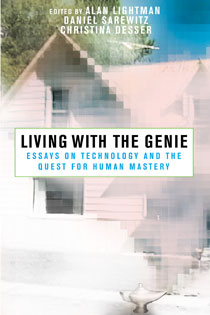"A group of remarkably penetrating, frank, and expert scientists, techno-wizards, activists, and writers raise provocative questions about what is gained and what is lost in a world enthralled by technology in this wonderfully soulful forum on life in the 'Wired World.'"
Booklist
"...with its balance, it is a welcome alternative to extremes such as the technophobia of McKibben's Enough and the Technophilia of Lee Silver's Remaking Eden."
Science
"Living with the Genie is a smart, critical, and eloquent contribution to the great debate of our time: as science and technology acquire the power to redefine what it means to be human, who gets to control the power, and to what ends? Much of what passes for technology criticism these days boils down the little more than Luddism; Living with the Genie is the real thing: deeply informed, clear-eyed, and demanding of our full attention."
Michael Pollan, author of "The Botany of Desire"
"This book examines—with wit, imagination, and rigor—a great paradox of humanity's past and especially its future. From the first stone tools to tomorrow's molecular robots, technology has been at once our servant and our master. It has filled bellies but assaulted ecosystems, saved time but undermined community, cured disease but threatened apocalypse. Can't live with it, can't live without it, but this book will help you think afresh about technology, and act accordingly."
Mark Hertsgaard, author of "The Eagle's Shadow"
"The great question of this century may be whether we are still human beings when it ends. This book does a fine job of laying out some of the key battle lines—and it includes several truly essential essays that advance the cautionary case onto new ground."
Bill McKibben, author of "Enough: Staying Human in an Engineered Age"

